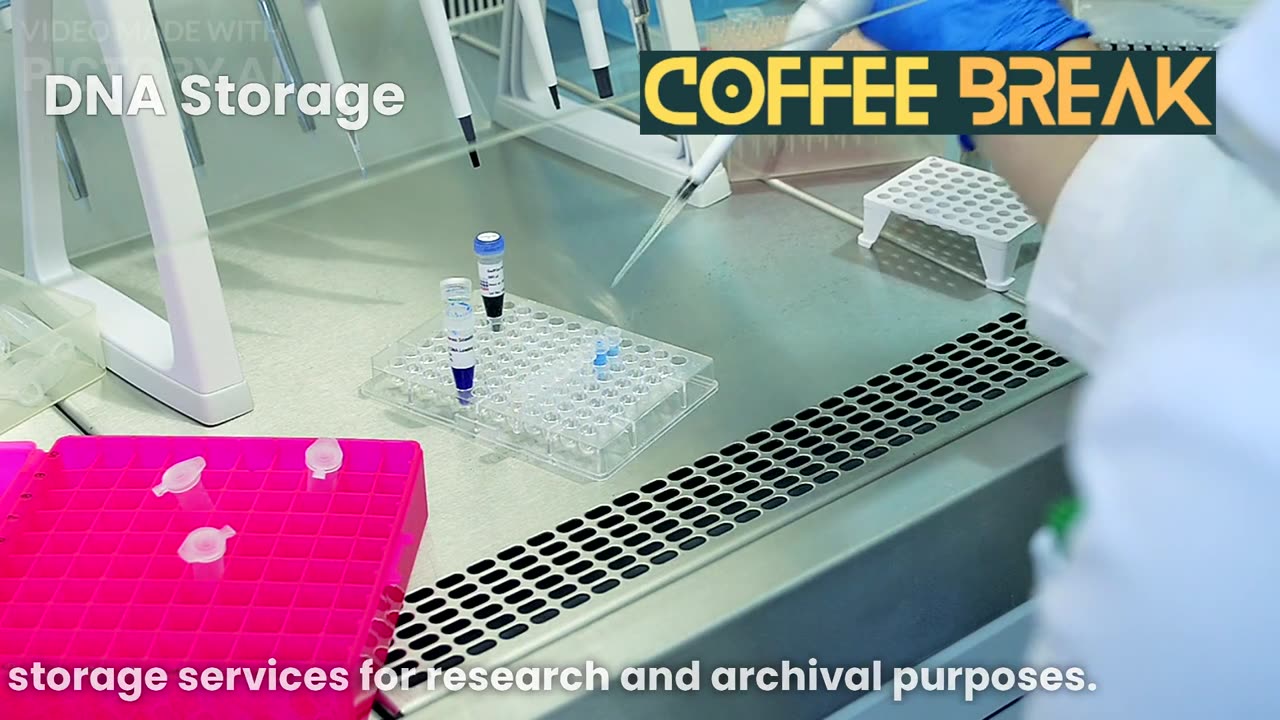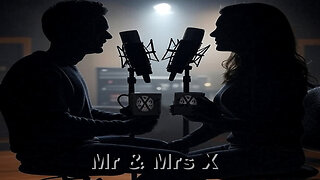Premium Only Content

DNA: The Future of Data Storage
DNA: The Future of Data Storage
The idea of using DNA for computer storage might sound like science fiction, but it's a rapidly evolving field with immense potential. Here's how DNA could revolutionize data storage:
Advantages:
High density: A single gram of DNA can store over 1 exabyte of data, compared to a few terabytes for a hard drive. That means the Library of Congress could fit in a coffee mug, and all the world's data could be stored in a room!
Durability: DNA has a half-life of over 500 years, significantly longer than current storage options. Imagine storing irreplaceable historical documents or vital medical records for millennia!
Archiving: DNA doesn't require electricity or special maintenance, making it ideal for long-term archiving. No more fear of data corruption or obsolete formats!
Self-repairing: DNA naturally repairs itself, reducing the risk of data loss. Think of it as built-in redundancy!
Encoding data in DNA:
Binary data (0s and 1s) is mapped to the four DNA bases (A, C, G, and T).
Synthetic DNA strands are created with the encoded data.
These strands are stored in capsules or frozen for preservation.
Challenges:
Cost: Synthesizing and sequencing DNA is still expensive, but the cost is steadily decreasing.
Speed: Reading and writing data is much slower than with traditional storage. It's more like a "black box" for archiving than everyday use.
Error correction: DNA errors can occur during synthesis and sequencing, necessitating sophisticated error correction algorithms.
Current state:
Scientists have successfully encoded and retrieved digital data in DNA, including the entire English Wikipedia.
Companies like Twist Bioscience and Catalog offer DNA storage services for research and archival purposes.
While not yet mainstream, it's gaining traction for long-term data preservation and niche applications like storing medical records on DNA chips implanted in humans.
In conclusion, DNA storage holds immense potential for the future of data storage. While challenges remain, research and development are rapidly advancing, bringing this once futuristic concept closer to reality. Imagine a world where our most precious data is safely stored in the building blocks of life itself, accessible for generations to come. It's an exciting prospect, and one that I believe will continue to evolve and shape the way we store and preserve information in the future.
Do you have any further questions about DNA storage or other innovative technologies? I'd be happy to discuss them further!
-
 57:26
57:26
X22 Report
5 hours agoMr & Mrs X - The Food Industry Is Trying To Pull A Fast One On RFK Jr (MAHA), This Will Fail - EP 14
61.5K40 -
 2:01:08
2:01:08
LFA TV
1 day agoTHE RUMBLE RUNDOWN LIVE @9AM EST
121K11 -
 1:28:14
1:28:14
On Call with Dr. Mary Talley Bowden
3 hours agoI came for my wife.
4.01K3 -
 1:06:36
1:06:36
Wendy Bell Radio
8 hours agoPet Talk With The Pet Doc
36K24 -
 30:58
30:58
SouthernbelleReacts
2 days ago $5.58 earnedWe Didn’t Expect That Ending… ‘Welcome to Derry’ S1 E1 Reaction
16.9K8 -
 13:51
13:51
True Crime | Unsolved Cases | Mysterious Stories
5 days ago $14.14 earned7 Real Life Heroes Caught on Camera (Remastered Audio)
32K9 -
 LIVE
LIVE
Total Horse Channel
14 hours ago2025 IRCHA Derby & Horse Show - November 1st
133 watching -
 4:19
4:19
PistonPop-TV
6 days ago $5.78 earnedThe 4E-FTE: Toyota’s Smallest Turbo Monster
28.8K -
 43:07
43:07
WanderingWithWine
6 days ago $3.20 earned5 Dreamy Italian Houses You Can Own Now! Homes for Sale in Italy
22.4K7 -
 LIVE
LIVE
Spartan
23 hours agoFirst playthrough of First Berserker Khazan
149 watching